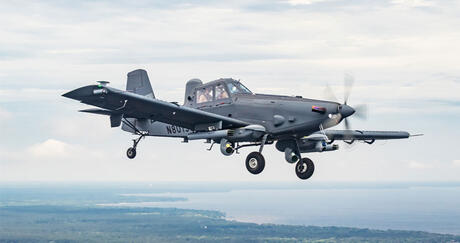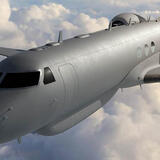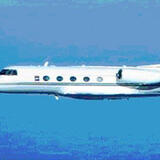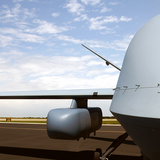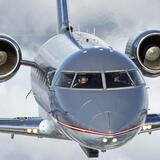Data combined with speed couldn’t be more crucial on today’s battlefield.
In the field of intelligence, surveillance and reconnaissance, the right data needed to make quick decisions is as valuable as gold. And as Joint All Domain Command and Control technology connects assets across the globe, data drives the battlefield.
Customers need data to make decisions quicker and faster than the adversary, said Matthew Steenman, Vice President, Engineering, ISR, L3Harris. A former ISR pilot himself, he knows the importance of obtaining the right data and quickly.
Recent advancements in ISR, thanks to model-based engineering, digital threads and modular open system approach (MOSA), enable capabilities at speeds not possible before.
Filling In The White Space
Last August, the U.S. Special Operations Command selected L3Harris and Air Tractor’s Sky Warden™ for the Armed Overwatch program contract.
In just nine months, the development team executed an extensive design and integration effort onto a non-traditional platform. Although typically on fighter aircraft, the effort included hands-on-throttle-and-stick controls that allow the pilot and sensor operator to control the entire mission system without having their hands leave the controls. The effort also integrated weapons onto the platform and hosted a fully integrated avionics system that coupled the mission system to the autopilot.
“Requirements were on one sheet of paper and very high level,” Steenman said. “Our team went in and filled in the ‘white space’ with our knowledge of the mission, the deep experiences with the systems required to execute that mission and knowing what the customer expects to see as an end product in a modern ISR and strike aircraft.”
In another example, L3Harris upgraded, certified and fielded the Airborne Reconnaissance and Electronic Warfare System for the U.S. Army in approximately seven months versus a few years.
“One of the things that makes us unique as a company and mission system solution provider is that the only constraints we have are the customer requirements,” Steenman said. “The original equipment manufacturers have to look at what aircraft are in their fleet and have to try to adapt it to the customer’s requirements. We have the ability as a platform-agnostic mission system integrator to pick the best-in-breed for the customer.”
Going Beyond MOSA Requirements
For years, L3Harris has invested in developing MOSA-aligned technologies, a preferred method for implementation by the U.S. Department of Defense. However, innovation requires a holistic look at the system to see what fits customer needs.
“Lots of suppliers claim MOSA for their components, but within L3Harris, we’re looking at the total mission system, and asking, ‘How do we integrate an entire mission system, not just the software or hardware components, following MOSA principles that allows the platform to integrate new or enhanced capabilities in the future?’” he said. “This unique approach lowers cost and time in developing a capability for the customer.”
For example, he said with Sky Warden™, the investment in model-based engineering allowed the development team to pull models right off the shelf and put pieces together, validating the system within a shorter amount of time. The advantages of a MOSA mission system were exemplified when, after the aircraft’s initial build, the Sky Warden team integrated a new weapon and launched it from the platform for a different customer within 12 days.
“It’s the digital thread our customers are talking about,” Steenman said. “We’re starting with model-based engineering and extending to operations analysis in the development phase and then in field service and updates after the platform is delivered. It becomes the digital blueprint we hand to customers. They have the documented design and can modify it in the future if they desire or continue to come to us as their trusted partner.”
Looking Ahead in ISR
As technologies continue to advance – and so do adversaries – there’s a need for platforms and sensors to be even more connected to share data.
Steenman said that for the past 20 years, the ISR industry has faced a relatively permissive environment where platforms separated communication pipelines, and data was analyzed and disseminated separately.
That’s all changed.
“It’s all about data,” Steenman said. “The more data that is available, the better the decisions will be that are made by the warfighter, and in the future, the better the decision the platform will make by itself.”
He said industry needs to build systems that can operate autonomously or cooperatively within a team of other manned and unmanned assets. The most difficult part of the development is no longer the vehicle, but the sensors and software inside that vehicle that collect, parse, fuse and then make decisions on the collected data.
“We must find ways for our systems to sense the environment around them, build an accurate picture of that environment and then efficiently share the data they have collected to create a larger coherent common operating picture,” he said.
L3Harris continues to stand out in the ISR realm as a one-stop solution with a wealth of expertise across domains.
“L3Harris is unique in the ISR realm,” he said. “We have fielded and proven solutions from the maritime environment to national level strategic airborne ISR assets to satellites. Not only are we developing and integrating platforms, we’re also bringing L3Harris products that are really the best-in-breed to enable critical missions.”

